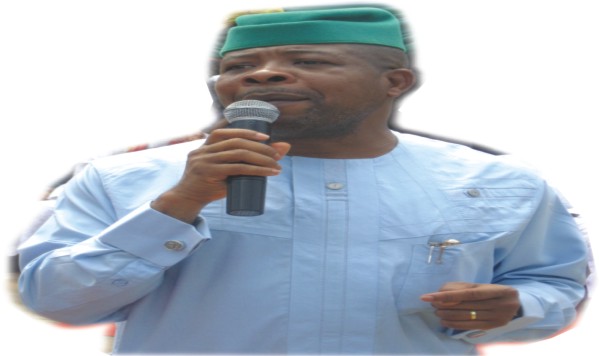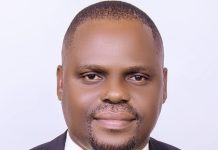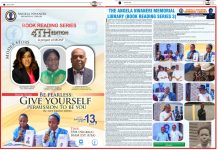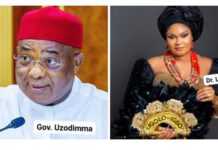By emeka ihedioha
On 24th July, 2013, in a historic voting that lasted up to 10.30pm, the House of Representatives, kept faith with the decisions and wishes of the Nigerian people, which had earlier been expressed during the Peoples’ Public Sessions that took place in the 360 Federal Constituencies of Nigeria, on November 10, 2012; the House lived up to its billing as the House of the Nigerian People by voting overwhelmingly on the side of their constituents, shunning pressures mounted on them by powerful interested parties to vote otherwise.
I will highlight some of the Amendments for the information of Nigerians.
The House voted overwhelmingly to give full financial, administrative, executive and legislative autonomy to Local Government Councils (LGC) in Nigeria. By this vote, the House has succeeded in making the LGC, a tier of government in Nigeria; denying undemocratically elected LGC’s of any Revenue Allocation from the Federation Account or from the States and creating uniform 4-year tenure for Local Government Councils
Similarly, it created the offices of Chairman and Vice-Chairman of LGC, including their qualifications, mode of election, oath of office, method of removal; established the Local Government Executive Council to coordinate the executive arm of the LGC. It also created the offices of supervisors as the equivalent of Commissioners in the States, established the Local Government Legislative Council, as the legislative arm of the LGC, and created the position of Councillors including their qualifications for election, mode of election, tenure, oath of office and conditions for recall of a councillor.
The House also provided for the offices of Leader and Deputy Leader as Presiding Officers of the Local Government Legislative Council (LGLC), providing mode of exercising legislative power of the LGC and their remuneration to be determined by the Revenue Mobilisation Allocation & Fiscal Commission. It abolished the “State Joint Local Government Account and replaced same with the “Local Government Council for direct payment to L.G.C’s from the Federation Account, establishing the Local Government Service Commission to take care of the bureaucracy at the Local Government Councils.
In a Consequential amendment, the House amended Section 285 (by introducing a New Section 285(2A) which established for each State of the Federation, a Local Government Election Tribunal to determine the validity of elections at the Local government Level. Provision for the appointment of an Auditor-General for LGC’s (Section126(1) was inserted.
The House voted 308 for, 22 against and 12 abstentions to amend or alter
section 8 of the Constitution by removing ambiguities in the creation of new states, and boundary adjustments. Section 8 (1)(b) was amended to require a referendum for creation of new states, to be approved by at least two-thirds majority of the registered voters of the Local Government Areas where the demand originated from instead of the current provision of approval by “two-third majority of the people of the area” , which is vague and subject to different interpretations.
In addition, Section 8(1)(c) was further amended to the effect that approval of the Result of the Referendum for creation of new states would now be by 2/3 of the State Houses of Assembly in Nigeria. The current provision requires a simple majority of the entire Nigerian voters and a simple majority of the whole 36 States Houses of Assembly sitting together or separately to vote.
The House voted 317 for, 6 against and 15 abstentions, to alter section 9 of the Constitution on the mode of altering provisions of the Constitution, thereby achieving the 4/5 majority required to amend the section. This amendment replaces an “Act” of the National Assembly with its legal connotation of a Presidential Assent (S.59) with a “Bill”. It further specifically dispenses with the Assent of the President as the voting of ¾ majority of National Assembly and 2/3 of the entire House of Assembly of the Federation was deemed sufficient for the purpose of determining the will of the Nigerian people.
Section 25 was altered by a huge majority to now give married women opportunity to elect to have indigenship rights in their Husbands Community or paternal Community. It further gives indigenship Rights to Nigerian citizens who have resided in a community continuously for not less than 10years. Furthermore, no Nigerian citizen shall claim indigenship of more than one state at a time.
The House’s vote also endorsed alteration of Section 33 of the Constitution to redefine the use of reasonable force by law enforcement agents to now mean that only a “commensurate, proportionate or equal force can be used in self defence by Law Enforcement Agent. This provides for a more restrained method of policing to protect the fundamental rights of Nigerians.
The House voted overwhelmingly to amend sections 34(2),35(7); 39(3); 42(3); 89(2); Section129(2); Section 162(1); and other parts of the Constitution to replace “Nigerian Police Force” with “Nigeria Police”. The rationale was to emphasis the civil nature of policing rather than celebrate “brute” force. This current progressive House also voted to amend section 42(1) to include “disability” as a condition that should not be discriminated against. Perhaps one of the most revolutionary amendments is the introduction by the House of new Subsections 45A, 45D by an overwhelming vote to move 4 items from (chapter 2 (Fundamental Objectives and Directive of Principles of State Policy) to chapter 4 (Fundamental Human Rights) and make them justiciable.
New Section 45A gives every citizen of Nigeria right to free basic education , new section 45B gives every Nigerian citizen, right to a favourable environment; new section 45C gives every citizen of Nigeria, the right to “free primary and maternal health care services”. Also, new Section 45D gives every citizen of Nigeria, Right to “basic Housing”
The House vote introduced new Sections 50A and 92A by endorsing the establishment of the National Assembly Service Commission and State Houses of Assembly Service Commission by an overwhelming vote. This is a deliberate attempt to strengthen the capacity of the Legislative Institution as the Federal Judicial Service Commission and Federal Civil Service Commissions take care of the Judiciary and Executive Arms of Government respectively.
The House in support of amendment of Section 59(4) of the Constitution to require the President of the Senate to convene a Joint Session of the National Assembly within seven days to reconsider any money bill vetoed by the President thereby removing the ambiguities and lacuna in the current provision. The House voted overwhelmingly by 313 votes For, 8 Against and 12 Abstentions to endorse Independent Candidacy in elections in Nigeria, by amending Section 65(b); 106(d); 131(c);Section 177 and other parts of the Constitution, in order to further open up the political space.
Furthermore, to ensure that the Independent Candidacy provision is not abused, Section 228 was further amended by introducing a new Section 228(e) which states that: “The National Assembly may by law provide __ for procedures, guidelines and qualifications for access to the Ballot by Political parties and Independent Candidates”. Sections 80(4) and 120(4) was replaced with a new sub-section that completely captures Appropriation of any form of revenue accruing to or derived by any Fund, Agency, Entity, or department of Government of the Federation by the National Assembly or State House of Assembly. In order to bring some form of Order to the budgetary process, the House in a near unanimous vote altered clause 81(1) and 121 [1), 81(2) and 121(2), and introduced new sections81(3a) and Section 121(A) into the Constitution.
Section 81(1) that allows the President to lay his Budget before the National Assembly at “anytime” in each financial year has been altered to “not later than 90 days before the end of each year financial year”. Section 81(2) amendment introduces “Other Public Fund of the Federation set up for specific purposes” as part of the estimates which the President must lay before the National Assembly for appropriation. In order words, Budget of such entities as NNPC, NPA, NIMASA, Customs and Excise etc. must now be laid by the President before National Assembly for Appropriation.
The new Section 81 (3A) amendments further defines the estimate of Revenue and Expenditure to be introduced by the President to include any form of revenue received or a return on government investment by any Agency of Government. The House further amended Section 82 and Section 122 of the Constitution by limiting the period by which the Federation and States may operate without an appropriation Act in any new financial year to three months, instead of six months.
The House similarly amended Section 84(5) and Section 124(5) of the Constitution by introducing the Presiding officers of the National Assembly and State Houses of Assembly to join the President, Vice President, Governors and Deputy Governors as persons entitled to pensions after office, provided that they were not impeached or removed from office. This decision is to correct a historic wrong perpetuation by the military against the legislative arm of government in order to deliberately undermine it as a Co-equal arm in the Administrative Structure of Governance. It is wrong to provide for the leaders of the Executive Arm of Government that have four years tenure and the leaders of the Judicial arm without providing for the Leaders of the legislative arm. It is better that all leaders of the three arms of Government are provided for jointly or none at all. This provision will help to insulate the officers concerned from financial and even political manipulations and corruption, while in office.
The House amendments introduced new Section 84A-84F splitting the offices of Accountant General of the Federation, with a 5 years tenure to handle the disbursement of Al1ocactions from the Federation Account to the three tiers of Government and the Accountant-General of the Federal Government with a 4 year tenure to administer Federal Government Accounts. It is significant that the Accountant-General of the Federation is to be appointed by the President on the recommendation of the National Economic Council, which is made of all the Governors of States. This appointment is however made subject to the confirmation of the Senate.
Furthermore, Section162 was amended to provide for the funding of the office of the Accountant-General of the Federation from the Federation Account pursuant to an Act of the National Assembly. The House voted also to separate the offices of the Attorney-General of the Federation and the Attorney General of the States from the Minister of Justice and Commissioner of Justice respectively by amending Section 173(1) and 2 and introducing new Section 174A, 174L and the equivalent sections for the states. The new AttorneyGeneral shall be a distinguished Legal Practitioner with knowledge of the workings of the Criminal Justice System and shall be independent of any authority or person. He shall not be a member of any Political Party. He will have complete control and authority over Public Prosecutions. He has a 5 year fixed term renewable only for another 5 years. His appointment shall be on the recommendation of the National Judicial Council for the Federation and State Judicial Service Commission for the States. He can only be removed by 2/3 of the Senate.
In order to check the excesses that may arise following the introduction of Local Government Council Autonomy, an independent Auditor-General of Local Government Councils of a State has been provided for. The House voted in favour of establishment of Electoral Offences Commission in Section 153 as one of the Federal Bodies in the Constitution. This is a bold attempt by the House of Representatives to tackle the hydra-headed problem of electoral integrity and effective sanctions for electoral malpractices. The word “Executive” was expunged as some bodies listed in Section 153 like the National Judicial Council cannot be said to be an Executive Body. The House also introduced anElectoral Offences Tribunal.
Section 162(2) was further amended to remove the Power of the President to table proposals for Revenue Allocation based on advice from the Revenue Mobilization Allocation &Fiscal Commission. The Revenue Mobilization Allocation &Fiscal Commission is now empowered to table the proposals to the National Assembly directly. This is to remove delays and interference in the work of the Commission so as to serve the whole federation in a neutral capacity. Section 162(6) was amended by the House deciding in favour of abolishing the “State Joint Local Government Account“and establishing instead a “Local Government Council Allocations Account” into which shall be paid directly allocation to each Local Government Council from the Federation Account and from State Governments. This is to ensure financial autonomy for the Local Government Councils in Nigeria.
The House voted by a huge majority to provide for a Role for Traditional Rulers at National, State, and Local Government levels. At the National level, Six Traditional Rulers reflecting the Federal Character of Nigeria are to be members of Council of State for 4- year duration. At the State level, a State Council of Chiefs is being established for each State. The functions of the State Council of Chiefs are mainly advisory in nature.
The House relying on the returns of the Peoples Public Sessions which endorsed measures to undertake Judicial Reforms and quicker dispensation of justice, voted overwhelmingly in the regard. In one of the most significant amendments of the current process, the House altered Section 241 by adding a new paragraph (3) to wit: “A Court or Tribunal shall not stay any proceeding on account of an Interlocutory Appeal”. This could impact in a very effective manner the time spent by litigants in our courts.
With respect to Judicial Reform and welfare of Judges, Section 291 was amended by the House to reduce the age for claiming retirement benefit by a Judicial Officer from 15 years service to 10 years service. This enables judges appointed before Age 55 to enjoy pension before retirement at age 65. In addition, Section 291 was further amended to enhance judges pension entitlements at a rate equivalent to the annual salary of incumbent holder of the offices as opposed to the current provision of pension entitlement of his last annual salary. This will take care of inflation and other cost of living adjustments.
Section 292 was amended by introducing a provision under which before the President or Governors acts on the address supported by the 2/3 of the Senate or House of Assembly to remove a Judicial Officer, the National Judicial Council must certify that a Prime Facie case has been made out against such officer. Perhaps one of the most courageous decisions of the House of Representatives in this amendment exercise is the removal of Criminal Immunity from the President, Vice- President, Governors and Deputy Governors, leaving only immunity against Civil Proceedings. This was effected by a vote of 292 members for, 26 members against and 30 abstentions. Members simply opted to keep faith with what their constituents decided.
The House further decided that conviction of a sitting President, Vice President, Governor or Deputy Governors is a ground for leaving office. This is why Section 180 was altered. The House deleted Section 315(2); Section315(4) (A), (i), (ii), and Section 315(4)(c). This should bring to an end the anachronistic position that allows the President or Governor to act as both the Executive and Legislative arms alone, by way of repealing or altering by modifications any existing laws. It was meant to be a transitional provision but there was no time limit placed on its use unlike the 1963 Constitution where such provision lasted only 6 months.
The Second Schedule, Part II, Section 4, Concurrent Legislative List was altered by the House transferring some items from the Exclusive Legislative List, like Railways to the Concurrent List, and certain residual items was moved to the Concurrent List, such as Health and Housing. The rational for moving Health and Housing apart from the extensive practical involvement of the Federal Government on both matters, is that the decision on the transfer of Right to Primary and Maternal Health Care and Basic Housing to Chapter 4 as Fundamental Rights would bring undue pressure on State Governments hence the need to share such burdens with the Federal Government.
The Independent National Electoral Commission has been empowered to conduct elections into the Local Councils following the abolition of the State Independent Electoral Commission by a vote of 331in favour, 16 against, and 11 abstentions.
In conclusion, the House of Representatives has done its job as Representatives of the Nigerian People. A lot of work will need to be done to harmonise matters with the Senate. The most crucial test of the amendment process will be when the process moves to the States. Nigerians must continue to be vigilant and engaged.
Rt. Hon. Emeka Ihedioha is Deputy Speaker, House of Representatives and Chairman, House Ad hoc Committee on Constitution Review.











